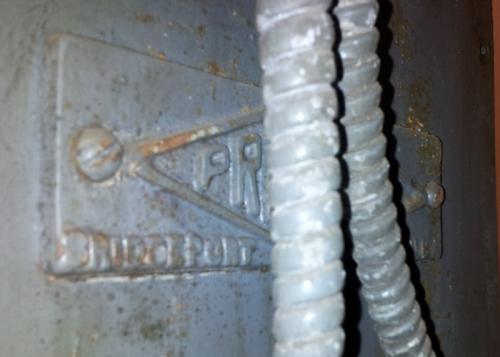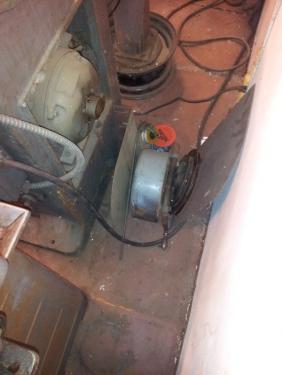Posts: 251
Threads: 21
Joined: Jun 2013
Location: Shiloh, Il. USA
Rick,
this has some Bridgeport (Connecticut) It's a Producto mill, made in Bridgeport. Very little info have I found, doesn't relate to the mill, but kind leads you to them.
http://www.mooretool.com/about.html I'm still thinking (I know weakens the nation) that this was WW2 maybe they made them during the war under gov't contract then just after turned to more profitable products


oldgoaly, proud to be a member of MetalworkingFun Forum since Jun 2013.
Posts: 537
Threads: 15
Joined: Jun 2012
Location: Cambridge, England
08-27-2013, 01:34 PM
(This post was last modified: 08-27-2013, 01:39 PM by Rickabilly.)
I would certainly guess WW2 era, just from the colour, roughness of the castings lack of screw feed on the table etc, even the spiral wound conduit is WW2ish. "War finish" was the name given to a lower grade of aesthetic applied to all machines produced during a certain period of the war, it meant that manufacturers were ordered to minimise the time spent on non functional areas of the machine build. so no paint just primer, no screw fed slides where they were not essential, cast on handles rather than turned knobs, many lathes were built without leadscrews and supplied with Automatic threading boxes, as single point threading required too much skill, the men having been replaced by unskilled women, so unless by special order some manufacturers stopped supplying lead screws altogether. One thing that was certainly "off the menu" was filling of cast surfaces so no shiny painted castings with pin striping, immediately pre-war this was standard on many machines, but the pinstriping never returned.
As far as "more profitable" don't believe it, throughout the 20th century no period was more profitable for engineering than WW2.
Whatever it is, do it today, Tomorrow may not be an option and regret outlasts fatigue.











